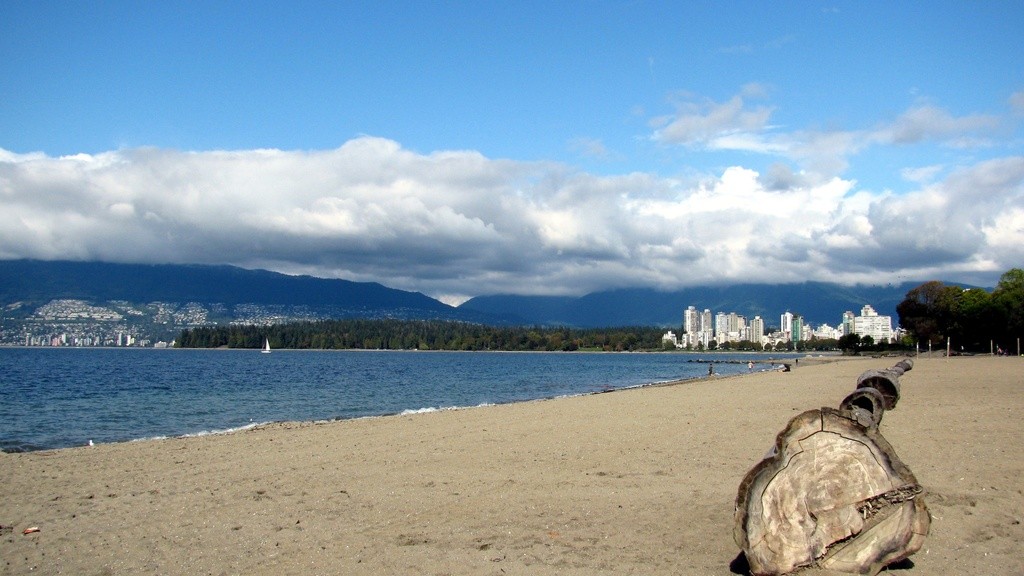Keep your distance from other people
Practicing social distancing is still essential. Only go to the beach if you are able to keep 6 feet or 2 meters away from others. Follow the instructions provided by your local health authorities. If your community has asked that you remain indoors and away from others, do so. Spending a day in any crowded place is the worst thing we can do for our most vulnerable right now and will counter our efforts to curb the virus’s spread.
____________________________________________________________________________________________________________________________________________
Photo by jellybeanz
About Vancouver, BC
Vancouver is British Columbia’s most populous city, and is one of the most ethnically diverse cities in Canada. This coastal seaport is located on the westernmost side of the country, and is widely regarded as one of the top cities worldwide for quality of life. Considering Vancouver’s stunning surroundings of ocean, islands, lakes, rivers, and mountains, this should come as no surprise.
To Vancouver’s north is the Burrard Inlet, to its east is Burnaby Lake Regional Park, to its south is the Fraser River, to its west is the Strait of Georgia, Vancouver Island, and the Pacific Ocean. From the city, you can look north towards the North Shore Mountains, or southeast to Mount Baker on a clear day.
Vancouver’s coastal beaches tend to be sandy, rocky, or gravelly, and feature old growth forests, tall evergreen trees, and logs along the shoreline. Inland, you will find rivers and lakes with sandy beaches and swimming holes with grassy banks set against a panoramic backdrop of scenic mountains and even waterfalls. Across the Strait of Georgia on Vancouver Island’s eastern shores, sandy or rocky tidal beaches dominate the landscape.
Many popular beaches are accessible by transit, and many beaches also have free or paid parking and washrooms nearby. Lifeguards are present from Victoria Day to Labour day from 11:30 am to 8:30 pm.
Swimming Water Quality in Vancouver
Vancouver Coastal Health monitors the water quality of 31 beaches in the Vancouver area. Sampling occurs from May to September, and then again in December for the city’s annual Polar Bear Swim. Data is posted on Swim Guide, and is usually available on Thursdays or Fridays.
Fraser Riverkeeper is an initiative of Swim Drink Fish that operates a year-round water monitoring hub in Vancouver's
False Creek. Recreational water quality samples are collected weekly from April to October and biweekly from November to March on a yearly basis. Samples are collected from three locations in False Creek:
Olympic Village,
Brokers' Bay, and
Vanier Park, and analyzed using an in-house IDEXX microbiology laboratory. Fraser Riverkeeper recognizes that people are recreating in Vancouver's waters year-round due to its temperate winters and is committed to providing citizens with reliable and accurate water quality data 12 months of the year.
Water Sports and Activities in Vancouver
Popular activities on the coast include sailing, windsurfing, kayaking, swimming, and exploring tidal pools. Vancouver’s waters have become a surprising destination for scuba divers as well. Here, you may see wolf eels, Pacific octopuses, or shipwrecks. You can also spot wildlife, such as sea lions sunbathing at Whytecliff Park or the resident seal at
Sandy Cove.
Inland, near lakes and rivers, wildlife watching is also popular, as are forested hiking and biking trails, camping, canoeing, kayaking, pedal boating, fishing, and swimming. On Vancouver Island just west of Vancouver on Nanaimo’s beaches, beachcombing, swimming, boating, kayaking, and fishing are common activities.
Jericho Beach is one of Vancouver’s most popular beaches for swimmers, sailors, and windsurfers. The beach features tennis courts, playing fields, and a swimming raft as well. Just to the east is
Kitsilano Beach, which is adored for its oceanside, heated, saltwater pool, swimming raft, and windsurfing, skimboarding, and stand up paddleboarding lessons.
Weather in Vancouver
July and August are the warmest, driest, and sunniest months in Vancouver. During these months, the daily maximum average temperature is 22 °C (72 °F). However, summer temperatures can differ greatly depending on if you are by the coast or inland. During the summer solstice, the days are long and twilight can linger past 10 pm. Water is warmest in August, with a maximum average temperature of 13 °C (55 °F).
This city has a number of fantastic beaches, often right beside each other. Vancouver’s Seaside Greenway stretches a whopping 28 kilometers along the city’s shore, making it the longest uninterrupted waterfront path in the world, and a great place to hop on your bike and go beach-hopping. Make sure you check out
English Bay along Stanley Park's seawall system.

